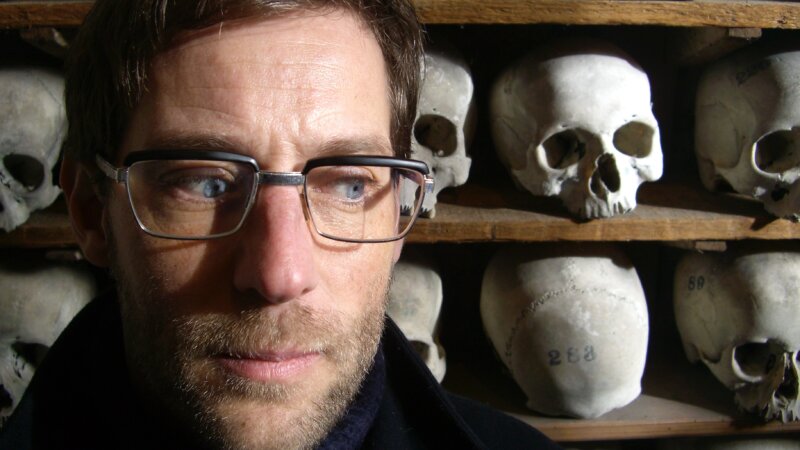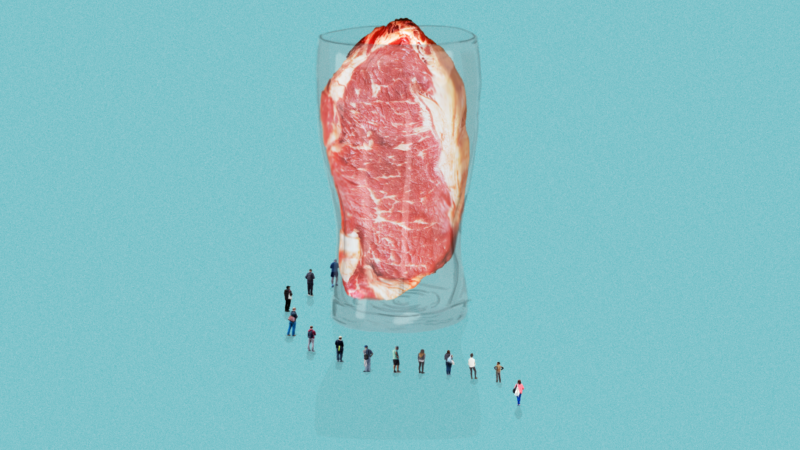Europe's Last Dictator: Alexsandr Lukashenko's Belarus
Recently, I was lucky enough to attend the premiere of Europe's Last Dictator with the filmmakers Mathew Charles and Juan Passarelli. Filmed over the past year, Europe's Last Dictator exposes torture, state-sponsored murder and kidnap in Belarus under President Aleksandr Lukashenko, showing the situation from the perspective of Eva Nyaklyaeu, the daughter of one of the presidential candidates in the last elections, and Irina Bogdanova, the sister of another presidential candidate Andrei Sannikov.
The documentary charts the violent crackdown on the country's opposition following the rigged election of 2010. Much of the documentary was filmed undercover. It paints a picture of Lukashenko's disturbed character and offers a rare glimpse inside one of the world's most under-reported nations. The night was to be hosted by Joanna Lumley, the film's narrator, with a post-screening Q&A session with Wikileaks founder Julian Assange.
I met up with filmmakers Mathew and Juan in London. As soon as we got on the tube we were surrounded by controversy. Londoners were clutching their free copies of the Evening Standard, which ran an article regarding the premiere entitled 'How the Cult of Assange Plays Badly in Belarus'. The article claimed that 'democracy activists in Belarus are furious with the Wikileaks boss because they believe unredacted US cables named their members, making them targets for the Belarus secret service'. The article echoed the words and tone of a similar piece published on the same day by the New Statesmen, which accused Assange of no less than 'tightening Lukashenko's grip on Belarus'. This attack on Assange was based on the alleged actions of Israel Shamir, who 'reportedly' met with Lukashenko's chief of staff Vladimir Makai and handed over cables that named numerous opposition members. In a Wikileaks statement it is claimed that 'Israel Shamir has never worked or volunteered for Wikileaks, in any manner, whatsoever. He has never written for Wikileaks or any associated organisation, under any name and we have no plan that he do so'.
When Mathew Charles was asked by the Evening Standard about the 'controversial' inclusion of Julian Assange, Charles stated that there was no proof regarding their claims and that he too was given the cables. Charles claims that some activists were mentioned but that they were already known by the regime. Mathew told me: "It's a small group of London-based journalists that claim the involvement of Assange is a sell-out of those who fight for freedom in Belarus, but all of my friends and contacts in the country have welcomed the attention he's bringing to their cause. I've had emails and Facebook messages thanking me.
"I wish people would report fact, not fiction, and just concentrate on what is happening in Belarus. One journalist said he'd prove Belarusians were against Assange being at the premiere by drawing up a petition. It never happened - I suspect because he couldn't find the signatures."
As we arrived at the premiere we were greeted by members of the Free Belarus Campaign, including Irina Bogdanova and members of the Belarus Free Theatre. A mixture of journalists, students and supporters started to arrive as trains rumbled overhead, and soon enough it was time for Joanna Lumley to introduce the film.
Lumley added her name to the cause of the film after having been made aware of the situation in Belarus by playwright Tom Stoppard. She said: 'Like many people in the UK, I had no idea of the oppressive nature of the present administration of Belarus until I was invited to join a protest about the detention and disappearance of one of that country's many political prisoners, Andrei Sannikov. As I learned more about the cruel and inhumane treatment of dissidents in a place so close to the UK, only just outside EU boundaries, I felt compelled to do what I could to help publicise the chilling facts of deaths and torture going on at this very minute. The more the outside world knows of these sinister secrets of Belarus, the greater the chance is of these innocent people being released... What evil deeds need is a bright light shone upon them.'
And a bright light is indeed shone upon the situation in Belarus in Europe's Last Dictator. The undercover footage brings the reality and brutality of Lukashenko's administration into clear view as Minsk's largest protest against its regime unfolds before our eyes. Thousands of Belarusians are seen taking to the streets in support of opposition candidates who have been silenced by a repressive regime, only to face an army of riot police who stand in lines intimidating the crowd by banging their shields in unison. Brutality ensues as the police begin attacking demonstrators whilst beating and rounding up the presidential candidates, many of whom are still being held in KGB prisons to this day.
The documentary also features a series of witty animations by Jose Passarelli which add insight into the political situation of Belarus and offer a lighthearted contrast to the documentary's more serious and sinister moments.
The Q&A panel also consisted of Irina Bogdanova, co-founder of the Free Belarus Now campaign, and Brian Bennet, former British ambassador to Belarus. Assange opened the discussion by explaining the origins of his interest in Belarus: 'I first became interested in Belarus in a serious way when I met Ales Bialiatski, who was one of the presidential candidates who had been imprisoned for about two years and after our meeting together in Oslo he was imprisoned in relation to the events that you saw in this film.' Mathew Charles went on to describe some of the difficulties he had making the film whilst pretending to be an exchange student learning Russian, adding a few anecdotes such as his shock at discovering that the flat he was staying in was next door to the KGB headquarters.
Irina Bogdanova spoke of the situation regarding her brother. She now knew which prison he was in and that he was alive, but that is all she knew. Former ambassador Brian Bennet gave a few insights into the way Belarus is regarded by Europe at large and hinted at the apparent hopelessness of attempts to rectify the situation. The only viable solution is to get Lukashenko out of office and that could prove to be extremely difficult given the current climate. Co-producer Passarelli spoke of the importance of social media and the need to spread the word about what is happening in Belarus. After the initial Q&A hosted by Assange, the panel was open to questions from the audience and the first question seemed to sum up perfectly the sentiments of everyone in the room: 'What can we do?'
For starters, I would urge you to watch Europe's Last Dictator and familiarise yourself with the situation in Belarus. As the aforementioned Assange controversy illustrates, it is all too easy to get swept away in a sea of soundbites and misinformation. It is harder to argue with raw footage of a scene unfolding before your eyes. Personally, I found it truly shocking to discover such an archaic and undemocratic regime is still at large in Europe, headed by a self-confessed authoritarian who idolises Hitler.
German Foreign Minister Guido Westerwelle recently wrote a report stating why Berlin was recalling its ambassador from Minsk: 'It is intolerable for us as Europeans to see human rights and citizens' rights in Belarus thus violated. This is the last dictatorship in Europe.'
Lukashenko recently spoke out against the decision from the EU to impose sanctions on numerous Belarusian government officials, banning them from travelling to EU member states. In response to Westerwelle's report, the President said: 'When I heard him - whoever he is, gay or lesbian - talking about dictatorship, I thought - it's better to be a dictator than gay.'





